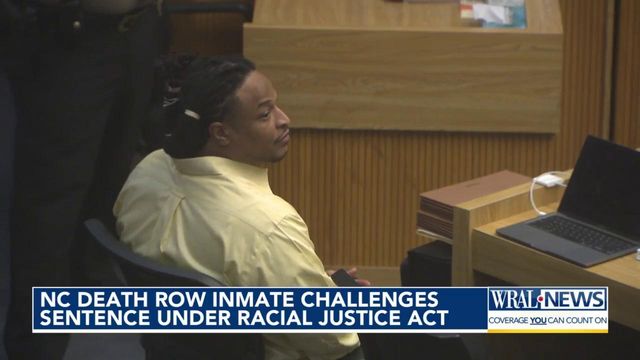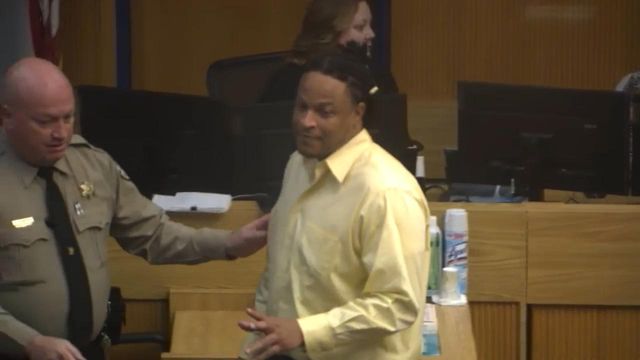Johnston County death penalty challenge argues race played a role, could have ripple effect for 100s of convicts
Statements continue Tuesday in the legal challenge to a Johnston County death penalty sentence. The multi-day trial could have implications for more than 100 people on death row in the North Carolina prison system.
At issue is the Racial Justice Act, a law that the legislature passed in 2009 — and then repealed in 2013 — that lets death row inmates appeal their sentence on the basis of racism in their prosecution. Although the law has been repealed, people who had started their appeals already were allowed to carry on those efforts due to a 2020 ruling by the state Supreme Court.
Hasson Bacote, the Raleigh man sentenced to death for a 2007 murder in Johnston County during a robbery, is seeking to enter new evidence about systemic racism in courts around North Carolina, based on a study out of Michigan State University. One of the main focal points is the lengths prosecutors in North Carolina go to keep Black people off juries, particularly in cases where the defendant is Black.
Henderson Hill, a longtime civil rights attorney who is representing Bacote, said Monday that North Carolina’s history of racial terror and segregation plays into that. In all trials in Johnston County, prosecutors strike potential Black jurors twice as often as potential white jurors. Bacote's case was even more slanted: Prosecutors struck more than three times as many Black jurors as white jurors.
“When a Black citizen presents himself or herself as a juror — as a decision-maker, to sit in that box — what the history suggests is that the past informs the present," Hill said. "And the racial disparities are concerning. Are disturbing.”
Jonathan Babb, a lawyer for the state, said the government believes racism to be “a pervasive evil” but that it takes more to overturn a death sentence than simply claiming racism. It must be proven, he said, and the state doesn’t believe the evidence Bacote is trying to enter does that.
Bacote was sentenced to death by 10 white jurors and two Black jurors. And Babb said Bacote’s actions were heinous enough to warrant the death penalty; he shot an 18-year-old named Anthony Surles during a robbery.
“At 139 pounds and unarmed, fleeing for his life, Anthony was no match for the rifle used by the defendant who shot him through the chest in a home invasion robbery,” Babb said Monday.
"The defendant's sentence of death was not sought nor obtained on the basis of race, and we ask you to uphold jury's verdict in the matter," he said.
One of Bacote’s arguments is that he wasn’t convicted of first-degree murder, unlike almost everyone else on death row.
Hill said the county’s history of Black people being treated too harshly by the courts in Johnston County isn’t just limited to murder trials, even if those are the most noteworthy. He referenced a case where five young Black men were sentenced to decades in prison for doing $25 worth of vandalism damage to a KKK outpost in Benson, despite none having any prior convictions. In another instance, he said, local authorities subdued a man in his parents' front yard and then shot him in the back of the head.
“Black lives were not being afforded the same dignity as others,” Hill said.
After the sides made their opening statements, the defense called an expert who spent more than five hours on the stand explaining her work on a study she says shows racial disparities in jury selection in the state, specifically in Johnston County.
The trial is expected to last for weeks, with social scientists and historians weighing in with expert testimony.











